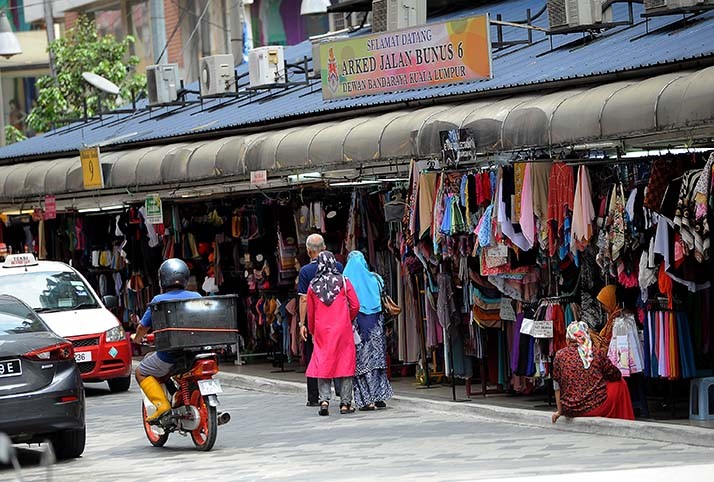
Small and medium enterprises (SMEs) may not be able to achieve the expected GDP contribution of 41% this year due to weak economic conditions brought upon by the Covid-19 pandemic.
Bank Islam Malaysia Bhd (BIMB) chief economist Dr Mohd Afzanizam Abdul Rashid said the current economic environment and rising unemployment rate may hinder Malaysia’s economy from growing at a positive rate.
He said the growth of SMEs is expected to decline by 1% this year, while Malaysia’s GDP is expected to contract by 1.5% year-on-year.
“As a negative growth is expected, the GDP contribution from SMEs might be affected as well,” he said during a webinar organised by BIMB yesterday.
SMEs’ contribution to Malaysia’s GDP increased to RM521.7 billion or 38.3% in 2018 compared to RM491.2 billion or 37.8% in 2017.
The segment plays a significant role in the country’s growth as it makes up for 98.5% of total registered businesses.
Mohd Afzanizam said there are signs of economic recovery following the easing of movement restrictions and the reopening of the economy during the Recovery Movement Control Order period.
The monthly increase in Malaysia’s Industrial Production Index (IPI), as well as a rebound in monthly vehicle sales reflect a gradual recovery taking place, he said.
SMEs’ growth rate tends to accelerate much faster than the overall economy by a factor of 1.09 and a swift recovery can be expected if the right policy is put in place, he added.
“If Malaysia’s GDP records a growth of 3.5% next year, we expect SMEs will grow by 4.5%, and if the country’s GDP further expands by 4.7% in 2022, we expect SMEs to register a growth of 5.8%,” he said.
Malaysia’s IPI rose 18.2% in May versus a 32% decline recorded in April 2020 due to the increase in all indices, namely manufacturing (25.9%), electricity (13.7%) and mining (0.4%).
The volume of monthly vehicle sales in May rose to 22,960 from 141 in April.
BIMB SME advisor Datuk Dr Hafsah Hashim said the SMEs’ GDP contribution target was made before the pandemic hit early this year and the global economic slowdown caused by the pandemic would lower the contribution expected from SMEs. She said the current economic growth recorded in the country would also pose a challenge for SMEs to achieve the target.
“If we were to be practical about it and acknowledge the limitations and challenges, it would be hard for the contribution to achieve 41%. In order to reach the target, the economy has to be growing at an average rate of 4.5%,” she said.
Malaysia’s GDP dropped to 0.7% in the first quarter of 2020 (1Q20), the lowest level recorded in 10 years, due to pandemic containment measures. Bank Negara Malaysia has warned of a more severe impact in 2Q20.
Economists have also revised down their full-year GDP forecast to a negative territory.
Hafsah added that the government should allow for automatic discharge from bankruptcy for SMEs that were forced to shut down their businesses because of the pandemic.
She said it should be considered under the Covid-19 Act, which is being drafted to ensure a faster recovery in the economy.
“If the government can consider this, it would be a good instrument to revive the economy in the fastest way possible,” she said.
Hafsah added that SMEs should also embrace several technology advancements, such as artificial intelligence, big data and digitalisation, to enhance their operations after the pandemic.
The adoption of these technologies will enable SMEs to increase job opportunities and reduce unemployment, while improving cashflow among small businesses. It also enables enterprises to quickly adapt to the new normal, she said.
Source: https://themalaysianreserve.com/2020/07/24/smes-contribution-to-gdp-to-fall-in-2020/

